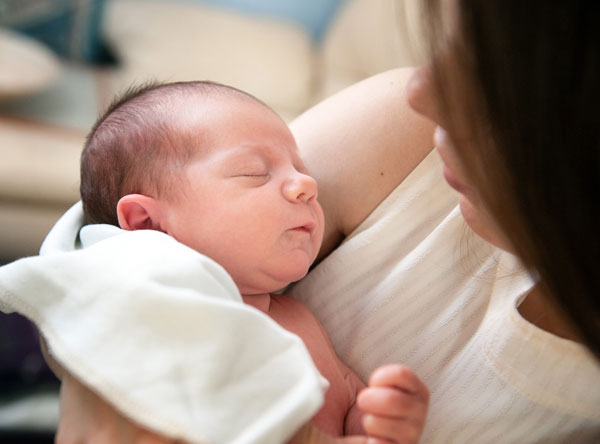Dobong high school declared to close in 2024, showing extreme low fertility rate case in South Korea

[New born baby. Photo credit to Pixabay]
Recently, Dobong highschool made the official announcement that they will close the school in February 2024 due to the lack of students and the decrease in the school-age population.
It is the first time that a general high school in Seoul is closing, and this event highlights the issue of the extremely low fertility rate in South Korea.
According to KOSIS, the fertility rate in South Korea is 0.81 children per woman in 2021, about half of the OECD average fertility rate (1.58 children per woman).
However, the bigger issue at hand is that the fertility rate continues to decrease rapidly.
Among the OECD countries, South Korea has the lowest fertility rate, an alarming rate of less than one child per woman.
By contrast, the fertility rate of the United States is twice as large and 1.5 greater than Japan, which also suffers from a chronically low birth rate.
Two significant causes of South Korea’s low birth rate are changes in social values and economic difficulties.
First, in the past, most people believed that having children was necessary.
They placed on value the birth of their children and tended to regard raising children as their duty.
However, due to the rise of individualism, the achievement of personal work has become more valuable.
Attaining one’s dreams has become a more important goal than bearing and raising children.
People now deem having children as an obstacle to achieving personal goals rather than an obligation.
Second, as the price of products rises due to inflation, raising children has also become more expensive, leading to financial difficulties and leaving low-income people in a situation where they are unable to afford the costs of raising children.
Children’s educational expenses, in particular, can cause significant financial strain.
Since South Koreans have the world’s highest zeal for education, most parents invest heavily in their children’s education.
These costs inevitably create financial challenges for the family. The low birth rate reflects a decreased quality of life due to economic difficulties.
The low birth rate has several consequences for the country.
The gradual decrease in birth rate leads to the population becoming proportionally older, causing an aging society.
An aging society refers to a situation where the proportion of older people among the total population is high.
An aging population is problematic because many older adults cannot participate in productive labor activities.
Since they are unable to work, their economic capacity is reduced or nonexistent.
Through no choice of their own, they become dependent on others to live.
Ultimately, the production of resources declines due to the lack of people with the capacity to carry out economic activities.
Further, an aging society results in an insufficient number of people who can create economic value by causing a decrease in the national labor force and a loss of the motivators that can develop the country.
In turn, economic activity will diminish.
As the low birth rate decreases, the population and economic activities shrink and become less efficient, leading to a stagnation in the people’s quality of life.
In an effort to increase the severely low birth rate, the government supports assistance with various childbirth expenses, childbirth subsidies for the birth of a newborn baby, and child-rearing expenses.
However, many people contend that the pool of government resources available for financial support is insufficient.
The government provides support in various ways to address the low birth rate, but there is a lack of resources necessary to provide economic support.
To address this serious global problem, South Korea’s government should implement ways to improve the fertility rate to prevent further challenges arising from its low birth rate.

- Hakyung Song / Grade 11
- Branksome Hall Asia

![THE HERALD STUDENT REPORTERS [US]](/assets/images/logo_student_us.png)
![THE HERALD STUDENT REPORTERS [Canada]](/assets/images/logo_student_ca.png)
